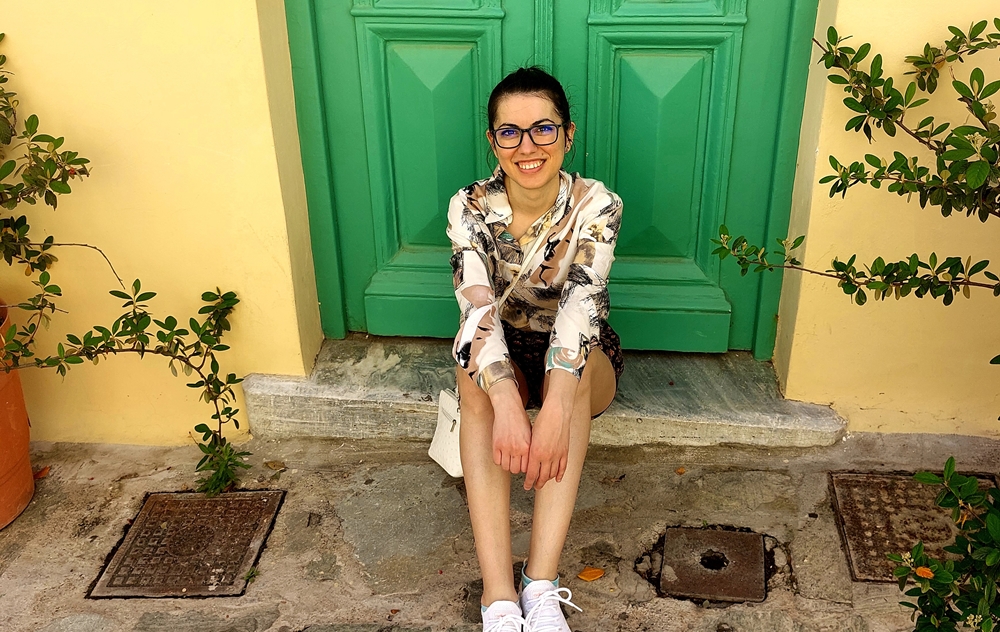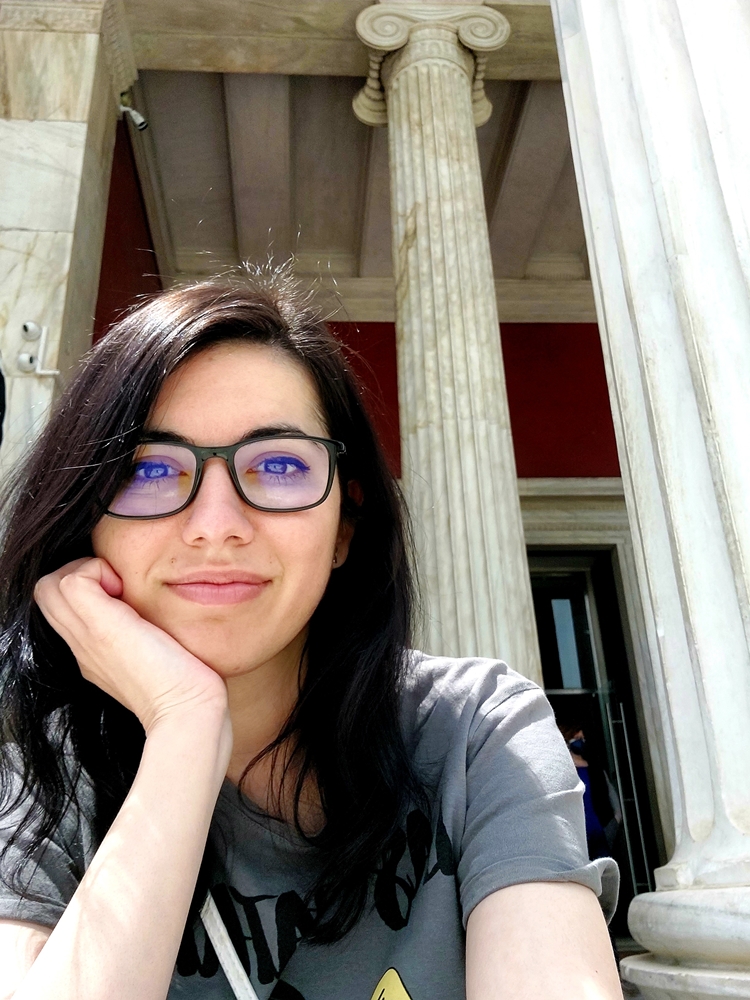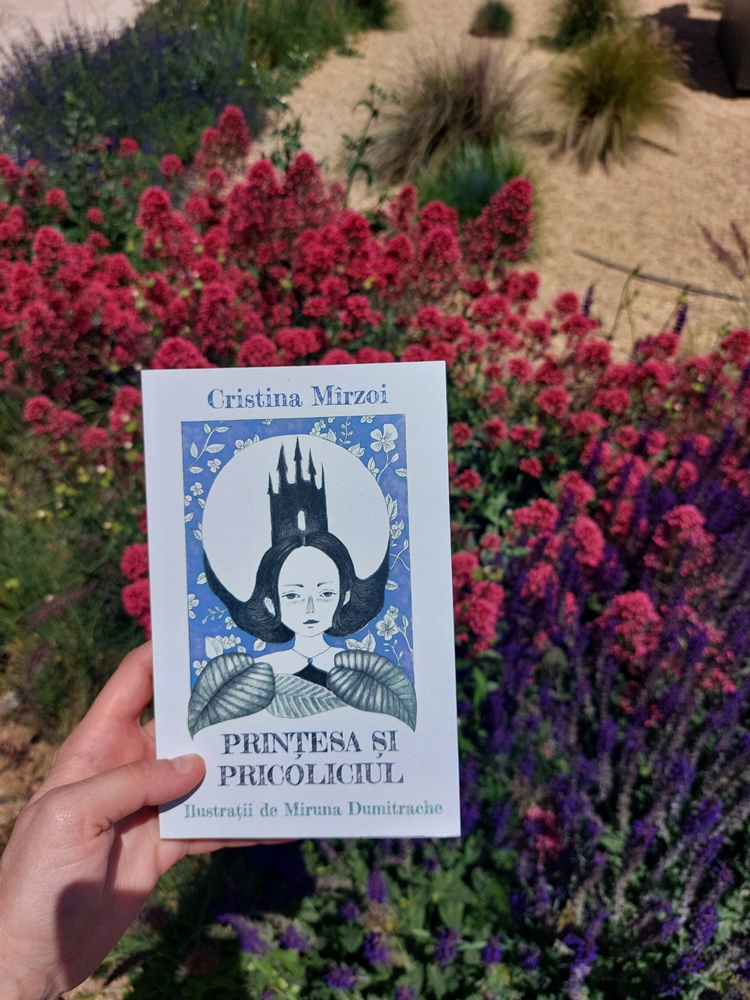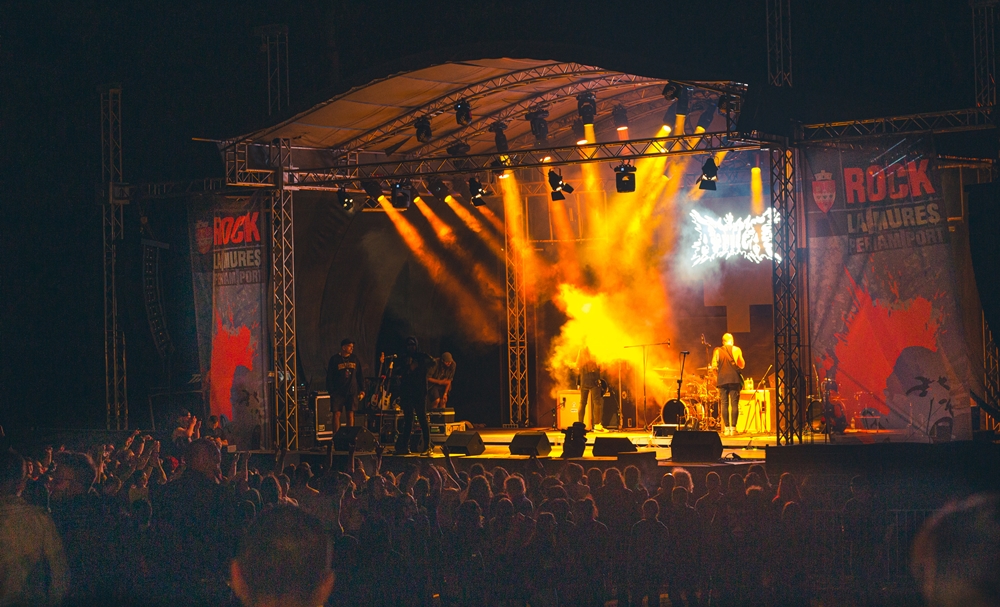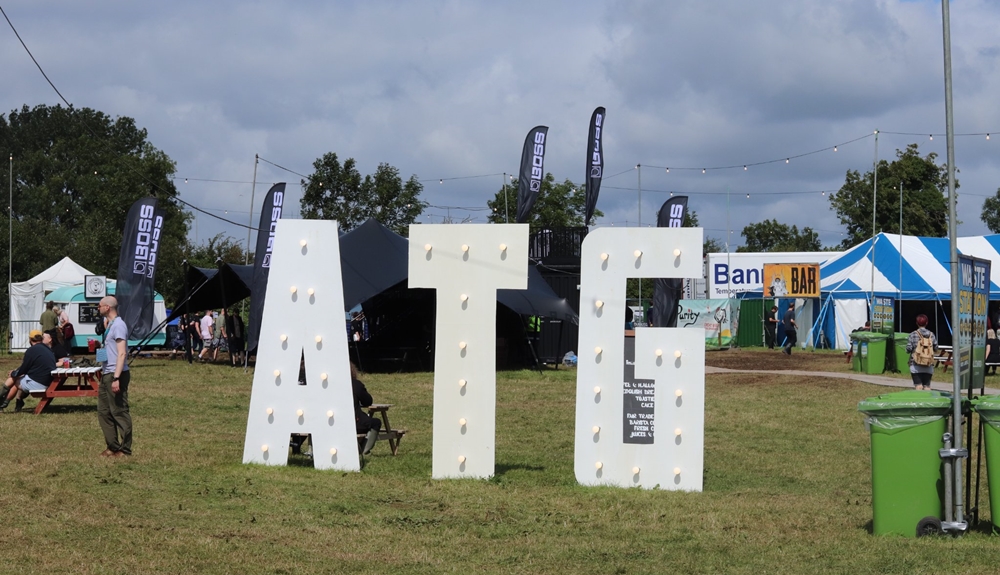Cristina Mîrzoi is a Romanian writer based in Bucharest. She has a bachelor’s degree in Communication and an MA in Religious Studies, with a dissertation on Divination in Classical Antiquity. Her writing career began in 2019 when she started working on a children’s fantasy novel in Romanian, her native language, ”Prințesa și Pricoliciul”.
She continued writing flash fiction horror pieces in English for US-based e-zines; her work has been published in Sirens Call Publications. “The Headsman” is her latest book, a short story collection in English. We talked with Cristina about her passion for writing, inspiration, fairy tales, and some religious stuff!
Hi, Cristina! Can you please talk about yourself and how you started writing?
Hello! Introductions are always a bit awkward for me if I’m being honest. Figuring out what are the most representative things that I can summarize about myself is a real struggle (smiles). This might sound cliche, but reading has always been an important part of my life. I was an introverted child, so books were my getaway; they made me happy.
I first tried my hand at writing in high school, with poems and short stories. Looking back, I wasn’t very good. My writings were heavily influenced by what I was reading at the time; they were cheesy, dramatic, and didn’t feel genuine. Dealing with low self-esteem (like most teenagers probably) made me reluctant to share them with others, so I abandoned the initiative.
A couple of years ago, because of some anxiety issues, I took up writing again as therapy because the entire process gets me in a good mood.
The part when God speaks, in the Book of Job, is one of the most beautiful pieces of literature that I have ever read.

Does growing up in Romania play any role or has it had an impact on how you create and tell stories?
I’m very fond of folktales and local mythology, but I haven’t explored this specific area that much until now. It’s something that I look forward to.
I don’t know if there is anything about being Romanian that could leave a mark on my style, but there are some differences between regions; Europeans have a more literary style, while in the US the story is more plot-driven (of course, this could also, be a subjective perception based on my reading experience).
You have a bachelor’s degree in Communication and an MA in Religious Studies. How did you get from religion to writing? Are there creative similarities between the two?
Although I’m not a religious person, and I don’t come from a religious household, Greek mythology and the Old Testament are two major interests I’ve had since early childhood.
Reading The Old Testament as a curious 9-year-old is still a vivid and cherished memory. Fun fact: I don’t even think it was an Orthodox version, most likely something from a Protestant branch brought to us by door-to-door representatives. My parents were not religious back then, but they were friendly (laugh).
Anyway, I was blown away by the stories because, for me, that was fantasy. I didn’t even grasp the notion of moral themes because I was simply enjoying the plot. The part when God speaks, in the Book of Job, is one of the most beautiful pieces of literature that I have ever read.
Fast forward many years later to me getting my bachelor’s degree in Communication: I went on a sabbatical year in terms of education and took some copywriting internships while figuring out what to do next.
Exploring dark topics is one of my primary interests.
One day I read about this MA in Religious Studies at the University of Bucharest and thought it was
something that I could enjoy, and I did; I learned so much, became more open-minded, got an Erasmus scholarship in France, and met some great people who I am still friends with.
After graduating, my initial interest was to continue with the study of the Koine Greek language and do translations of a lesser-known classical text, Phlegon of Tralles’Book of Marvels. Interestingly, this work is like a penny dreadful, being composed of several tales about ghosts, omens, portents, weird occurrences,
fantastical and paranormal events.
Since life is never predictable, I ended up with a corporate job, writing fiction during my free time. It does help to be more acquainted with certain areas such as religion, as I enjoy creating surreal texts, and nothing is more surreal than a pantheon of gods or some wicked magical practices. Having written my dissertation on Divination, I do like to integrate this mystical side of belief into my writing.
What drew me into “The Headsman” was the dark vibe that feels very reminiscent of Grimm’s fairy tales. What led you to write such short, dark stories?
Fairy tales: I have loved them as a child, and I love them now. This dark side, which is indeed more prominent in Grimm’s tales, has always intrigued me. I also appreciate the more sensitive part of modern fairy tales. For e.g., Hans Christian Andersen’s tales played an important part during my childhood, and even now, to me, his writing is a perfect blend of beauty, sadness, and heartwarming moments.
Exploring dark topics is one of my primary interests, while also using a more literary style since I don’t enjoy being too brutal or graphic. Short stories work best for me because I can focus on the plot and not get lost or bored along the way.
Do you have a common starting point when you write?
Sometimes it’s a feeling, other times it’s an image. It depends. There’s never a plot at the beginning; I just write what’s on my mind, review it and see if it makes sense. I got the idea for “The Headsman,” while attending the funeral of one of my grandfathers, many years ago. It was during springtime in the countryside; It was sunny, weeds filled the cemetery, and there were a lot of lilac trees in bloom. It was a beautiful moment despite the context, and it sort of stayed with me until I could finally put it down into words. The lilac was used as a motif throughout the book, and even on the cover created by my amazing illustrator, Miruna Dumitrache.
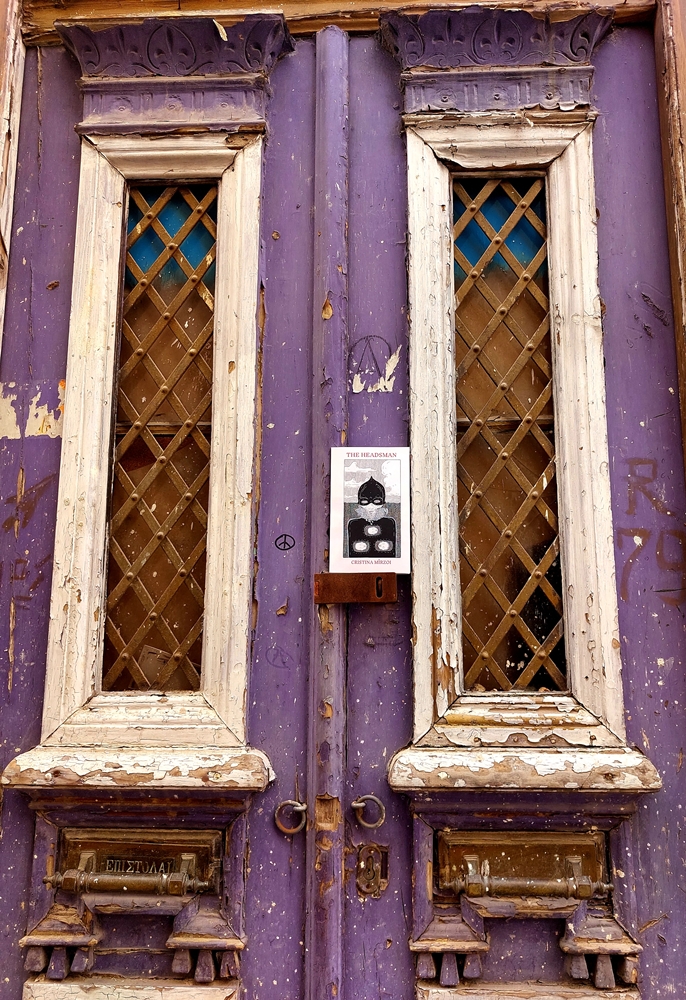
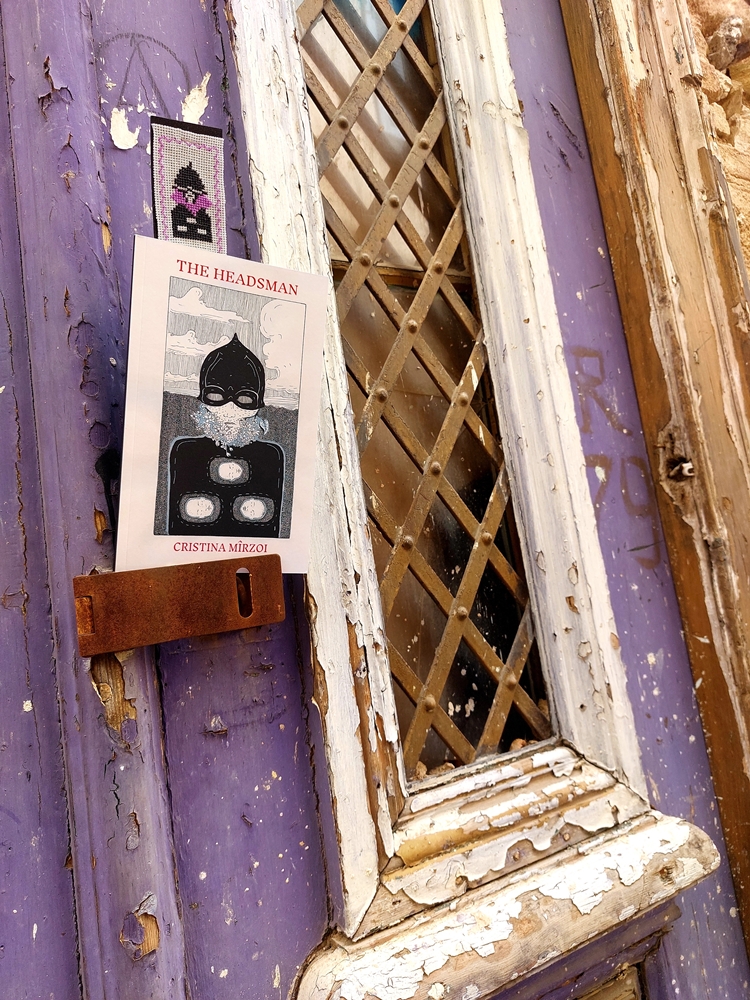
In “The Headsman,” there is a doubt, a psychological horror that permeates the story. Do we know what we think we know? It keeps the readers off-balance. Are there other books that influenced you in this style of storytelling?
The first chapter came up as an entry for the autumn edition of a horror ezine (Sirens Call Publications), and that was it; just a decent Halloween story. But I kept thinking that there might be more to explore in that universe and kept going back to the headsman character in particular; I tried to imagine what kind of person is he, how did he become a headsman, does he have family, friends, is he happy or content with his job, etc.? And the more I thought about it, the story sort of flowed. I wanted it to feel more intimate so that we get to know each person’s reasons and motives for acting in a certain way or another because for me there is no real villain in this story. It isn’t placed in a certain time or region; so that it could take the form of a tale passed on from one generation to another, of which we don’t know if it’s true or if the versions changed over the years.
Other books, apart from folktales, did not inspire me in particular, it just felt right to use multiple POVs. Also, I got lucky in finding an editor who was a perfect match for my ideas and my style (shout-out to Dion from thefinetoothed.com- that helped me with the narrative structure and making the text smooth as silk).
What would you say are some of the main themes explored throughout the book?
The idea of grey characters mainly, the way circumstances can change a person’s moral ground and how there is more than one version of the truth.
How did this writing experience differ from “Prințesa şi Pricoliciul” (Children’s Fantasy Novel)? Did you work similarly, or did you create an entirely new routine for the new project?
I was a bit more technical with the children’s book. It had to be clear and concise since it took place in such a complex world and had many characters. Also, I had to explain things more and be more detailed, since children are the main audience. I fully agree with the “show don’t tell” technique, but for kids, you do have to tell more sometimes.
Writing in English is a unique experience since it’s not my native language, so it’s more challenging. Short stories, like “The Headsman,” really works best because, as I mentioned before, I can focus on the plot and size the story appropriately. I like that in English there is a richer vocabulary and more flexibility.
Having an adult audience also feels easier. When I write for children I always stop to double think if something is right or appropriate. I do try not to overthink or restrain myself too much, but in the end, I am a bit more careful.
What, if anything, did you learn in the writing of “The Headsman”?
I learned not to struggle too much if I’m not in a good state of mind, or if I’m not feeling that the quality of the text meets my expectations. I just appreciate the experience without worrying too much about the final result.
When writing a story, do you start with an idea or a character and go from there?
Most times I start with an idea and try to link it to a character. Then I like to put myself in the character’s position and start thinking about random situations and how that character would react to them.
What do you like in a fantasy story? What thrills you, what repels you? Have you read any books lately that affected you?
I like stories that make me feel, sometimes appreciating style over plot. There’s this author I really love that a friend, who is also a writer, recommended to me a few months ago – Sonya Taaffe; I’ve recently read a few reviews about her work that label it as pretentious, and slow paced. And fair enough, we all have different opinions and appreciate different things, but that’s not the point, for me, it’s about
the experience. When I read a paragraph of hers, I’m amazed by the perfect placement of words and by how evocative it can be. I’m simply mesmerized, and that’s what I long for while reading a book.
Also, if a character is well written and interesting sometimes that is enough for me.
I recently read a creepy little novella, a well-written piece, “The Lunchling” by Jay Alexander; it’s very reminiscent of 80s horror movies, folk horror, and it had some classical scare formulas. I was so invested in the main character’s arc and its well-being; his worries and concerns were so genuine and relatable, that I found it impossible not to root for him and at times I was moved by his thoughts and actions.
I get put off by romance novels marketed as fantasy, and it’s not necessarily because I’m not such a big fan of the genre and I feel a bit cheated by the marketing strategy – I mean I’ll read a romance novel if it’s well written, that’s not an issue. But I often find them sort of bland and relying too much on overused
tropes.
As a reader, I like to be challenged and surprised. In the end, I do understand that commercial fiction’s main goal is entertainment, but I prefer the few who walk the fine line between commercial and literary fiction.
Is there an internet story, conspiracy, or creepypasta that scared or creeped you out?
I don’t necessarily actively go looking for dark stuff out there in the infinite internet universe, but I have a friend who got immersed into the Ioan Petru Culianu murder topic for a short period, like for a month or so, and it got a bit intense for me also with all the weirdness and mystery surrounding the events.
Do you ever consciously think about the art you leave behind after you have died?
No, not really. I try to live in the moment.
Guilty pleasure time. What would you say are some of your current most guilty pleasures? All is fair game-food, books, video games, or even cock n’ ball torture, whatever floats your boat. Let us have it.
OMG, the shame! It’s such a long list, but off the top of my head, here are a few:
It might come off as a surprise since I write dark fiction, but I love Christmas movies, even the blandest, cheesiest, most cringe-inducing Hallmark productions. I said that I’m not a big romance fan, but I am a sucker for Hades and Persephone retellings. Currently, I’m obsessed with “Lore Olympus,” which is really cute and has great artwork, but I’ve also read dubious stuff like “Neon Gods” or “A Touch of Darkness.” I don’t want to offend people who truly appreciate this type of writing; for me, it’s lacking artistry, it’s smutty and toxic, but hey I’m here for it. (laugh)
After a day of work, I’ll sometimes indulge in some Webtoon comics before bedtime; like the most ridiculous stories that I can find (time traveling, reincarnation, demon battles, being transported into a novel or video game), which are probably more appropriate for middle school children.
I never leave the supermarket without buying a Kinder Surprise chocolate egg, and yes, I do it mostly for the tinny toy.
Glitter: I buy a ton of glitter make-up, which I seldom use. I blame HBO’s “Euphoria” for this.
This last one is really the worst, and I mean rock bottom, but I have been keeping up with the Kardashians.

Follow Cristina Mîrzoi on:
Instagram | Goodreads
